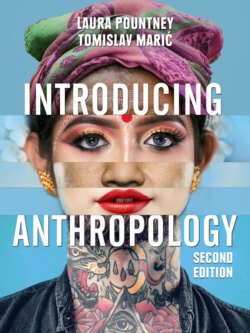Читать книгу Introducing Anthropology - Laura Pountney - Страница 68
Key issues and debates
ОглавлениеWhat is ethnography?
How do practical, ethical and theoretical issues affect the choice of research method?
What are the main advantages and disadvantages of using participant observation and unstructured interviews?
To what extent is fieldwork an objective research method?
How do digital environments and methodologies redefine ethnographic practice?
Anthropology as a discipline is unique in its commitment to explore human cultures. This chapter discusses only the research methods of social/cultural anthropology. Social anthropologists learn about the culture of another society most distinctively through fieldwork and first-hand observation in that society, although other methods are used as well. Anthropological research involves a range of methods, such as informal (unstructured) interviews, direct observation, participation in the life of the group, collective discussions, analyses of personal documents produced within the group, self-analysis, results from activities undertaken off- or online, and life histories over a prolonged period of time. These kinds of data are rich, detailed and qualitative, offering deep insight into the culture studied.
fieldwork The firsthand observation of human societies
informal (unstructured) interviews An unstructured question-and-answer session in which the informant is encouraged to follow his or her own train of thought, wherever it may lead
These methods are also applied in the newer anthropological subdiscipline of digital anthropology, which explores the impact of digital culture in everyday life. This chapter looks at some of these research methods and at the practical, ethical and theoretical issues that are associated with them.
